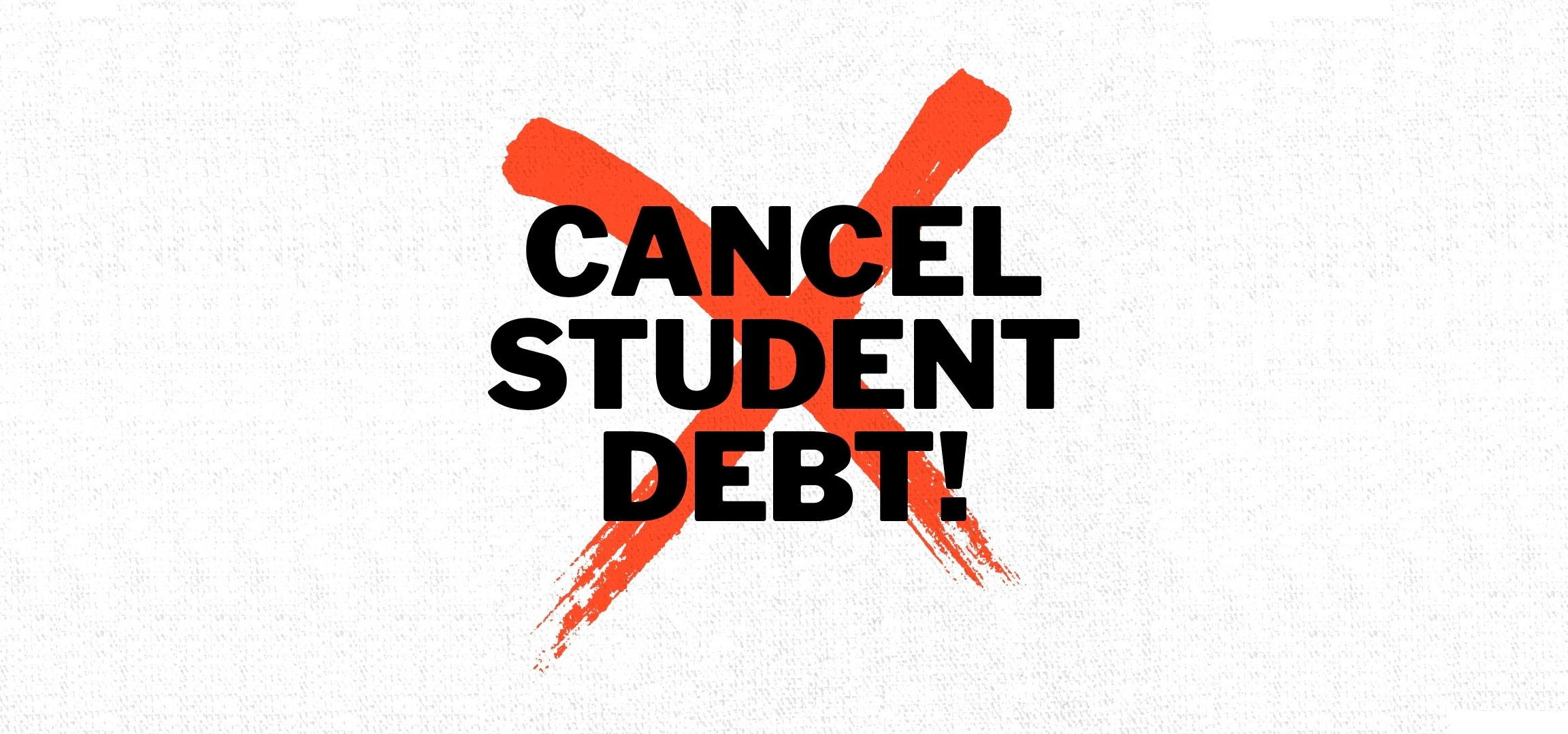The AAUP recently made student loan abolition a central part of its New Deal for Higher Education, adding to the mounting pressure on Joe Biden to deliver an education debt jubilee. Delivering a significant measure of relief has become the first great test of his new presidency. Wiping the slate clean would provide a much-needed economic stimulus in the face of the coronavirus recession. It would also be the single most effective action to reduce a racial wealth gap that economists have shown is magnified by disproportionate student loan burdens, and that manifests all too clearly here at NYU. Who better to sign off on a jubilee than the politician who has striven to distance himself from the moniker he earned (from the National Review, no less) as the “senator from MNBA”? Long the champion of credit card companies in Delaware’s corporate sanctuary state, Biden is now charged with delivering for the other side. Even worse, the pressure to do so is being fronted by Chuck Schumer, no slouch when it comes to shilling for Wall Street, but mindful of a possible primary challenge from the left.
The U.S. government does not have the best record on offering debt relief, but it has come through under circumstances favorable to some version of the “national interest.” For example, half of West Germany’s postwar debt was written off as a down payment on the Cold War, while Washington’s contribution, however meager, to the World Bank/IMF’s Heavily Indebted Poor Countries (HIPC) relief initiative helped to bolster the nation’s human rights profile. More tellingly, the massive bailout of Wall Street’s toxic loans after 2008 showed the power of corporate debtors to extract forgiveness when needed. But there is a clear double standard when it comes to household debt relief. The specter conjured up by “moral hazard” dictates that, unlike for banks, forgiving our debts will only encourage individuals to take on more risky loans. If the government says no, then it’s for our own good.
The excessive hardship delivered by the pandemic presents the case for an exception to the rule. After all, it’s not their fault that so many households can’t pay their bills. Nor will an economic recovery pick up steam in the absence of debt relief. But it is no surprise that Biden is sending mixed messages on this issue, and looking for a way to pass the buck to Congress. He says he doesn’t believe he has the legal authority to issue an executive order. That is plain wrong. Indeed his predecessor already invoked that authority. Using powers cleared through the Department of Education, Donald Trump (who once declared himself to be “the king of debt”) ordered student loan forgiveness for disabled veterans in 2019. Nothing has changed in the authority of the office. But the scale of the write-off under consideration (Schumer and Elizabeth Warren are pushing hard for $50,000) is entirely unprecedented. Abolishing that magnitude of household debt will compromise the cozy relationship between government and a financial industry reliant on politicians to enforce the payback morality that ensures Wall Street’s profits. Is it Joe Biden’s destiny to upset that apple cart?
In the February 16th town hall when Biden declared that he would not approve a $50k write-off, he stated his belief that debt relief should, however, be extended to those engaged in occupational “volunteerism.” The examples he offered were teaching and working in a battered women’s shelter. This concession speaks volumes about how Democratic centrists like Biden see public goods like education and healthcare for the vulnerable. Anyone willing to work in these occupations must be doing sacrificial labor, and therefore they deserve a break. That transactional approach to socially necessary work and to social rights in general has become the governing mentality of neoliberalism. The exceptional period of the pandemic—when the normal rules of business are suspended—offers an opportunity to build immunity to such beliefs. But the right to affordable education will only be realized if we assert it, on behalf of a profession whose collective power is sadly underutilized.
We need more organized pressure to make that happen. Grassroots organizing by groups like the Debt Collective (which just launched its Biden 100 debt strike) have pushed the student debt jubilee and College for All to the front burner. As educators, we should be part of that effort. It’s our home turf, after all, and student debt is sucking away the lifeblood of our profession, worrying our conscience every time we step into our classroom. Compromised by their complicity with the student loan racket, the executive class of university leaders have been notably silent on the topic. If they won’t, we can, and should, step up.
Andrew Ross is the secretary of NYU’s AAUP chapter, and a founding member of the Debt Collective.



